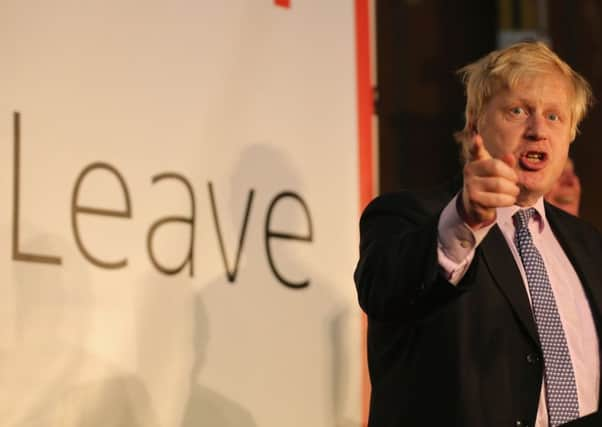Leaders: Day of European unity takes lesson from history


Co-ordinated international action by British and European security forces has resulted in the arrests of five people allegedly linked to the terrorist atrocities in Paris and Belgium.
Counter-terrorism officers believe they have identified a threat and are investigating whether those arrested are linked to Mohammed Abrini, a major suspect in last month’s Brussels attacks and the Paris attacks last November.
Advertisement
Hide AdAdvertisement
Hide AdBut the key factor is that in moving to tackle these suspected terrorists, we have seen the Belgium and French authorities, MI5 and West Midlands police all getting together to act.
We have also seen unprecedented action by the UK and its European allies to aim a “hammer blow” at tax evasion following the disclosures contained in the leaked Panama Papers.
A deal signed by Chancellor George Osborne with France, Germany, Spain and Italy will see the automatic sharing of details about who exactly owns overseas trusts and shell companies, and the clamping down on those evading paying their dues.
Both the action culminating in the arrests and the swift move on tax evasion came on the first official day of campaigning for the EU referendum and give high-profile examples of how co-operation can be beneficial.
No-one is suggesting that the UK authorities would stop speaking to its European counterparts if the Brexit camp is successful on 23 June.
But there might be resentment and a departure by the UK will undoubtedly fuel anti-EU feeling in other countries.
The European Union is not a perfect structure. Many claim it is remote and unaccountable, staffed with bureaucrats with power to impose rules and regulations which do not always fit well with the British way of life.
In the coming weeks, we are going to hear many arguments based round the economics of remaining as a member of the EU or leaving, with much discourse on how much it costs us financially.
Advertisement
Hide AdAdvertisement
Hide AdCardinal Vincent Nichols, the leader of the Catholic Church in England and Wales urged the church’s members to “look beyond narrow economic concerns” and to consider the situation which prevailed now among the allies after the destruction and carnage of the Second World War.
“The “economic arguments are not the whole picture by any means... In the EU, trade is harnessed to peace. An essential feature of the EU is the peace that has been sustained in Europe since the end of the Second World War.”
We should indeed look beyond the narrow economic confines of the balance sheet and reflect on this day of European cooperation not seen before by younger post-war generations. It seems strange to consider being less close when we are now facing new challenges such as the migrant crisis with thousand of people trying to flee to Europe and the Isis threats. Looking at recent history, being together and acting together must surely be what nations must do.
‘Theatre for all’ must continue
The National Theatre of Scotland is now without its highly talented artistic director after the departure of Laurie Sansom, who had been in post for only three years.
Mr Sansom has without doubt delivered a wonderful programme. He will perhaps be best remembered for bringing The James Plays to village halls, community centres and theatres, ensuring world-class theatre was available and affordable to all.
There can be no doubt that Scotland should have a national theatre to showcase the work of its first-class actors and writers.
But there has been talk of “damage by cuts” whereby reducing funding to the arts has plunged the NTS into a drama not of its own making.
It would now be difficult to imagine a Scotland without a national theatre.
Advertisement
Hide AdAdvertisement
Hide AdWe are now accustomed to picking up the latest programme and being spoiled for choice by a range of productions challenging us with contemporary issues from the
teenagers in “Our Ladies of Perpetual
Succour” to “Calum’s Road” depicting the true story of crofter Calum MacLeod’s struggle to build a road to save his township on Raasay, off Skye.
Coupled with this are the after-show discussions which encourage the audience, especially those for whom going to the theatre is something new, to discuss the issues portrayed on stage.
Surely a national theatre ought to be a priority when it comes to allocating funding.
It cannot have escaped notice that Mr Sansom leaves his post not long after he spoke out at the Scottish Parliament about the damage the funding cuts were inflicting.